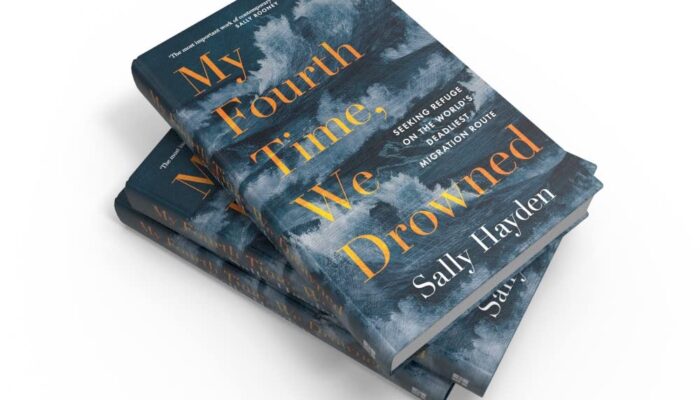Book Review: “My Fourth Time, We Drowned: seeking refuge on the world’s deadliest migration route” by Sally Hayden
Sally Hayden is a young and energetic freelance journalist, who travelled frequently all over Europe and North Africa in the three years from late 2018 to late 2021, when she interviewed — then kept in contact with — hundreds of refugees and migrants seeking to exit perilous Libyan situations. For most, this meant crossing the Mediterranean Sea to Europe, with an estimated 20,000 deaths occurring between 2014 and 2020. Many had come to Libya to work, and found themselves stuck, without the option to return. The first approach to her was in August 2018 via Facebook from inside Tripoli’s Ain Zara detention centre, from a starving detainee familiar with her journalism about Sudan, Ethiopia and Eritrea.
The aid organisations and the UN said it was too dangerous to visit the centre, but the more she found out the worse it looked, so she went there to confirm what was happening. There were six thousand (soon to become 17,000) people in the twenty or so Libyan government detention centres, many of the refugees were not registered as such, and the civil war and bombing going on for much of the time added to the disaster. The centres became notorious for their slavery, rapes, executions, violence and starvation conditions, and the EU, national governments and NGO officials needed to be held accountable, since their local activities or vicarious financing of the Libyan coastguard since 2017 — to avoid direct refoulement — implicated them.
By her relaying of refugee messages through Facebook, Twitter and WhatsApp, the mainstream media got involved, and then officialdom, being the IOM (International Organisation for Migration, a UN agency). This amplification caused many media organisations and NGOs to approach her for more information; surprisingly, they had no contacts themselves in the centres. Gradually, more lawyers, journalists and activists started making direct contact with detainees themselves then published what they heard. In future, the inevitable spread of smartphones means that questioning will be returned — Hayden predicts all of us will be contacted directly by desperate people seeking assistance. How will we respond?
Hayden doesn’t shirk in her reports on a number of Libyan centres, and the situations in Sierra Leone and West Africa, where returnees originally from those countries were sent back. Much of her commentary is critical of the UN agencies and international NGOs for their sanitised reports and low expectations of the EU’s use of funds to prevent departures; MSF (Medecin Sans Frontieres) is the honourable exception but others lauded by various celebrities appear very flawed.
For those in detention, hiding phones and topping up credit is the lifeblood of connection and possible action: “this SIM card is our life”, one man said. And also exposure — as well as being a window to the world, she notes that it is now easier for refugees to become more aware of hypocrisy, including the corruption and wealth of their own politicians. However, there are other sides to social media: the embedded slave market in Libya, Sudan and Northern Niger is enabled to use shocking photos posted on the Internet to extort much higher ransoms from relatives in Ethiopia, Eritrea, and Somalia of those kidnapped, since their diasporas are lucky enough to have higher income groups.
Unsurprisingly, her reporting has a dramatic, first-person quality which she references, from social media and internet links, to public statements and media articles. In this way, she is held accountable by readers, having rejected the advice of publishers and agents to leave out much detail to make the book easy for the general reader; so the specialist can also learn much from her wide-ranging travels. Hayden says to her contacts that she’s not an activist and can’t help them directly, only report; her report of a stint on a rescue boat is not total adulation, showing her honesty. As well as being a reporter with reflections on the run, she explains the decision-making architecture in Paris, Berlin and Brussels, citing chapter and verse, and is not shy to ask questions of officials.
Maps and a timeline of the Europe-Libya interaction from 2015 to late 2021 give context, as well as annual figures of sea arrivals, interceptions and deaths.
P.S. A recent UN inquiry largely endorses Sally Hayden’s criticisms of the EU’s role in Libya.
Kevin Bain’s refugee reading guide is at Bayside Refugee Support. It has short summaries of about 100 books published over the last 20 years
